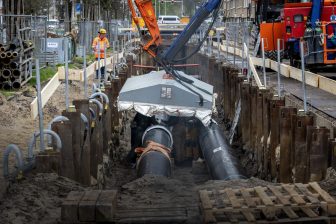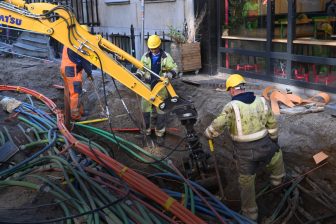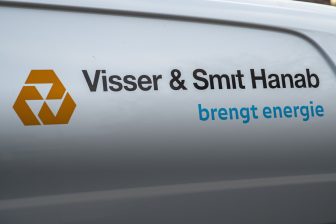Making mobility safe and environmentally friendly
Programme for the EU Council Presidency in the fields of transport and urban development
In Berlin 2006-12-29 the Federal Minister of Transport, Building and Urban Affairs, Wolfgang Tiefensee, presented his Ministry’s programme for the German EU Council Presidency. In Europe alone, there will be a 45 percent increase in the volume of freight traffic between now and 2020. "This means that issues related to the ecological and economic efficiency and safety of the European transport system will become increasingly important. Transport growth, which we need for economic growth, must not have an adverse impact on people’s quality of life", said Mr Tiefensee.
In order to cope with the growing volume of freight traffic, the remaining obstacles on the way towards a single European railway area are to be removed. Germany will thus push ahead with the uniform European train driver’s licence and support the rapid introduction of rules governing the mutual recognition of locomotives in the EU Member States.
"Today, motorists no longer have to wait at barriers at internal European borders. In the future, the same must apply to rail transport", said Mr Tiefensee.
In the field of traffic management, the Galileo satellite navigation system will open up new possibilities in the future. It will be used, for instance, for control and monitoring systems in the rail, maritime and aviation sectors, and for the navigation of heavy goods vehicles and passenger cars in the road sector. Tiefensee said that he would therefore support the European Commission in its endeavours to conclude the concession contract with the operators, thereby setting the stage for the next twenty years.
The German agenda includes a range of issues that are designed to advance technological innovations that will enhance the safety of the citizens of Europe.
eSafety promotes the development and deployment of intelligent integrated safety systems in motor vehicles by using modern information and communications technologies. The objective of the eSafety initiative is to improve road safety in Europe and reduce the number of accidents on European roads.
SESAR (Single European Air Traffic Management Research) – a modern air traffic management system that is designed to enable air navigation services to meet the capacity requirements resulting from the growth in air traffic while preserving the level of safety.
As far as future energy and resource security is concerned, the Minister wants to achieve clear European positions during the six months ahead. "In this context, I will champion a European fuel strategy, and would like to push ahead with proposals on innovative drivetrain technologies and alternative fuels and discuss the issue of energy efficiency", said Mr Tiefensee.
Looking ahead to the next Assembly of the International Civil Aviation Organization (ICAO), which is to be held in the second half of 2007, the Minister will seek a coordinated position with the other EU Member States on the inclusion of aviation in emissions trading. This would mean that if airlines exceed their CO 2 emission allowances, they will have to purchase appropriate certificates. Mr Tiefensee stated: "It would make sense to include all international and domestic flights to and from the EU in the emissions trading scheme".
In the maritime sector, which is growing at a disproportionate rate as the international division of labour proceeds, the EU should establish further safety rules. Under the German Council Presidency, the following legislative proposals are to be advanced:
- improving safety checks on ships in ports;
- vessel traffic monitoring and information systems for safe shipping;
- compensation for passengers travelling by sea and inland waterway in the event of accidents.
"Cities are the drivers of the European economy. That is why we have to strengthen them", said Mr Tiefensee. Promoting the sustainable development of cities and regions is thus absolutely essential if Europe is to have a promising future. For this reason, the Federal Ministry of Transport, Building and Urban Affairs will be hosting an informal meeting of ministers responsible for urban development in Leipzig on 24 and 25 May 2007, at which policy recommendations for action to harness the growth potential inherent in the regions of Europe (Territorial Agenda of the EU) and cities (Leipzig Charter) are to be adopted.




